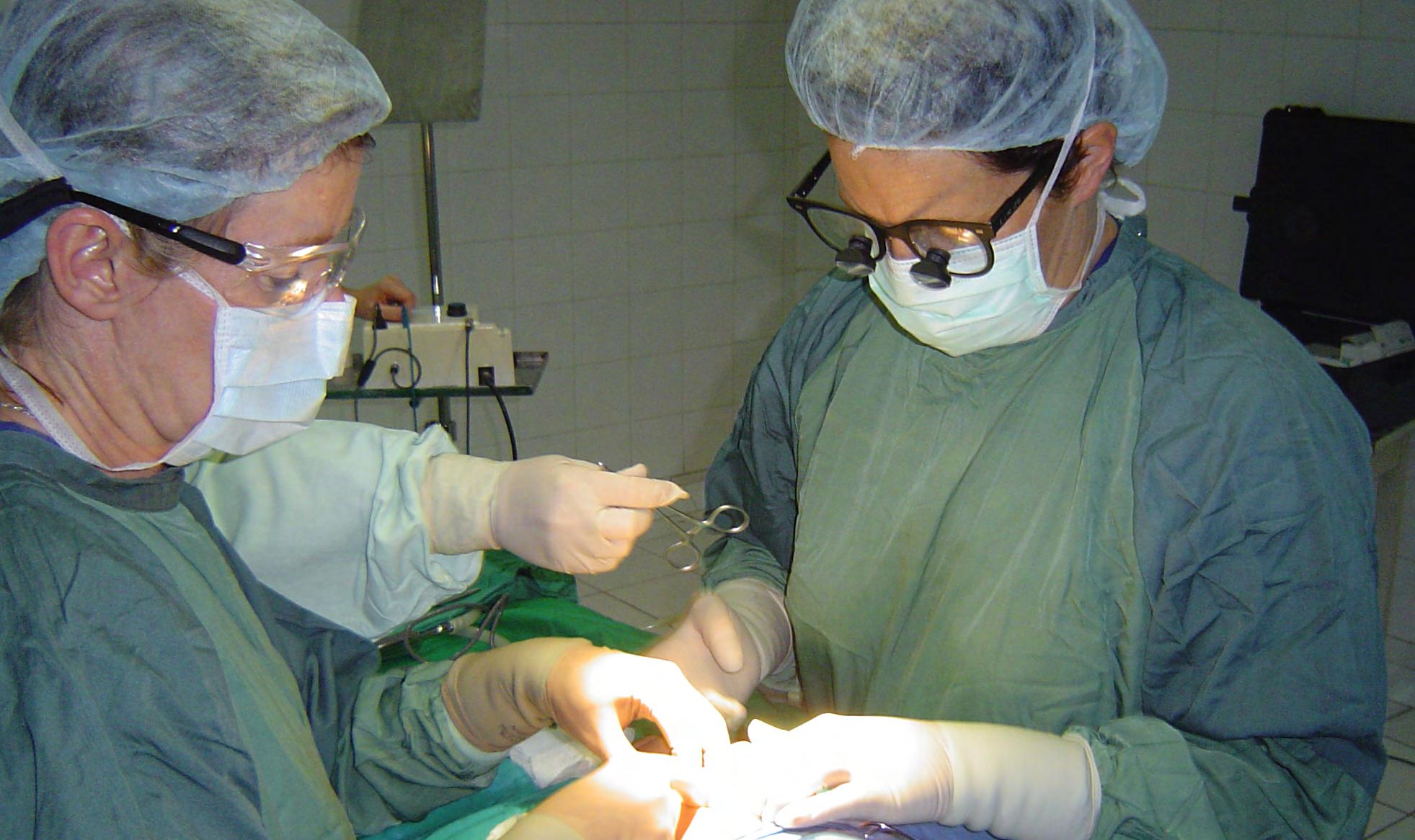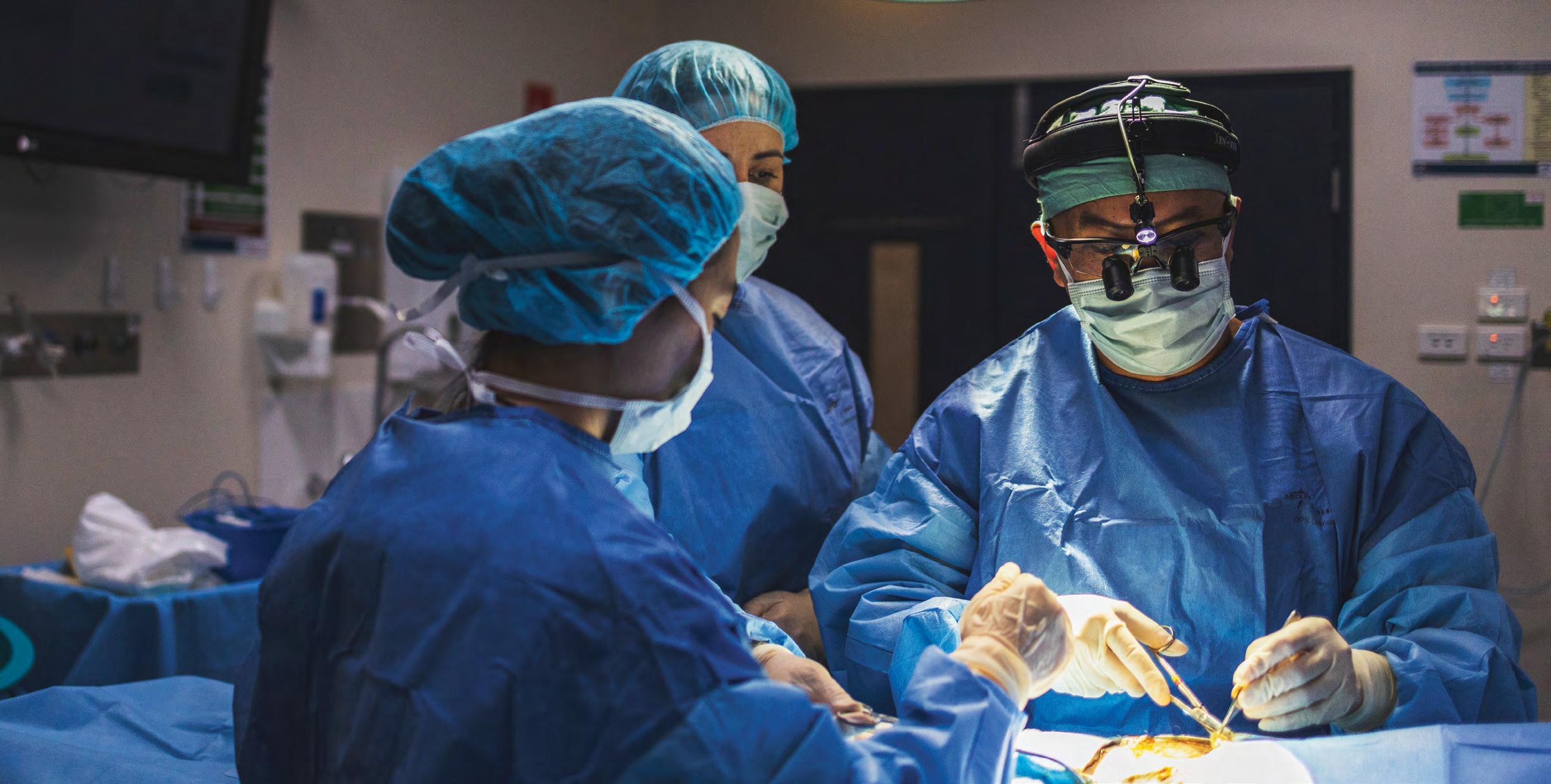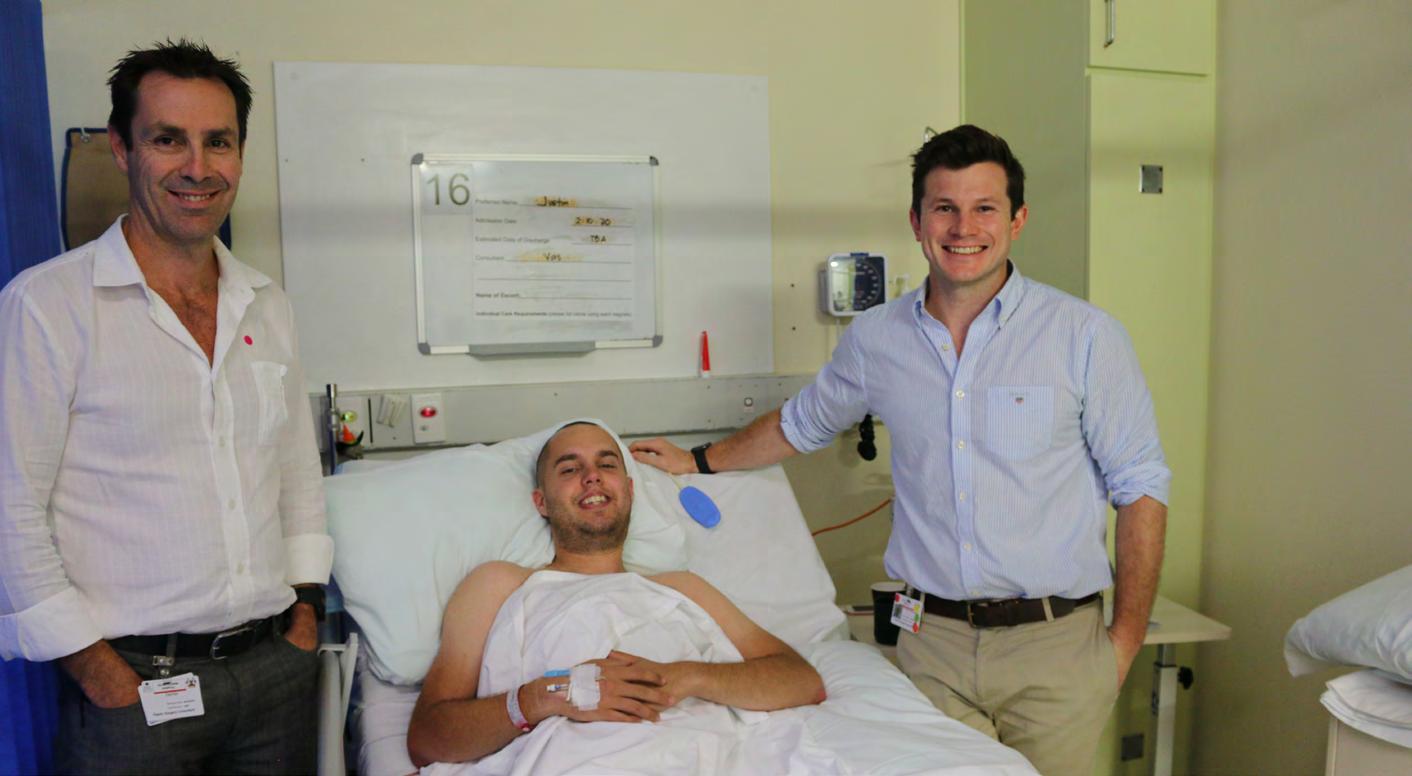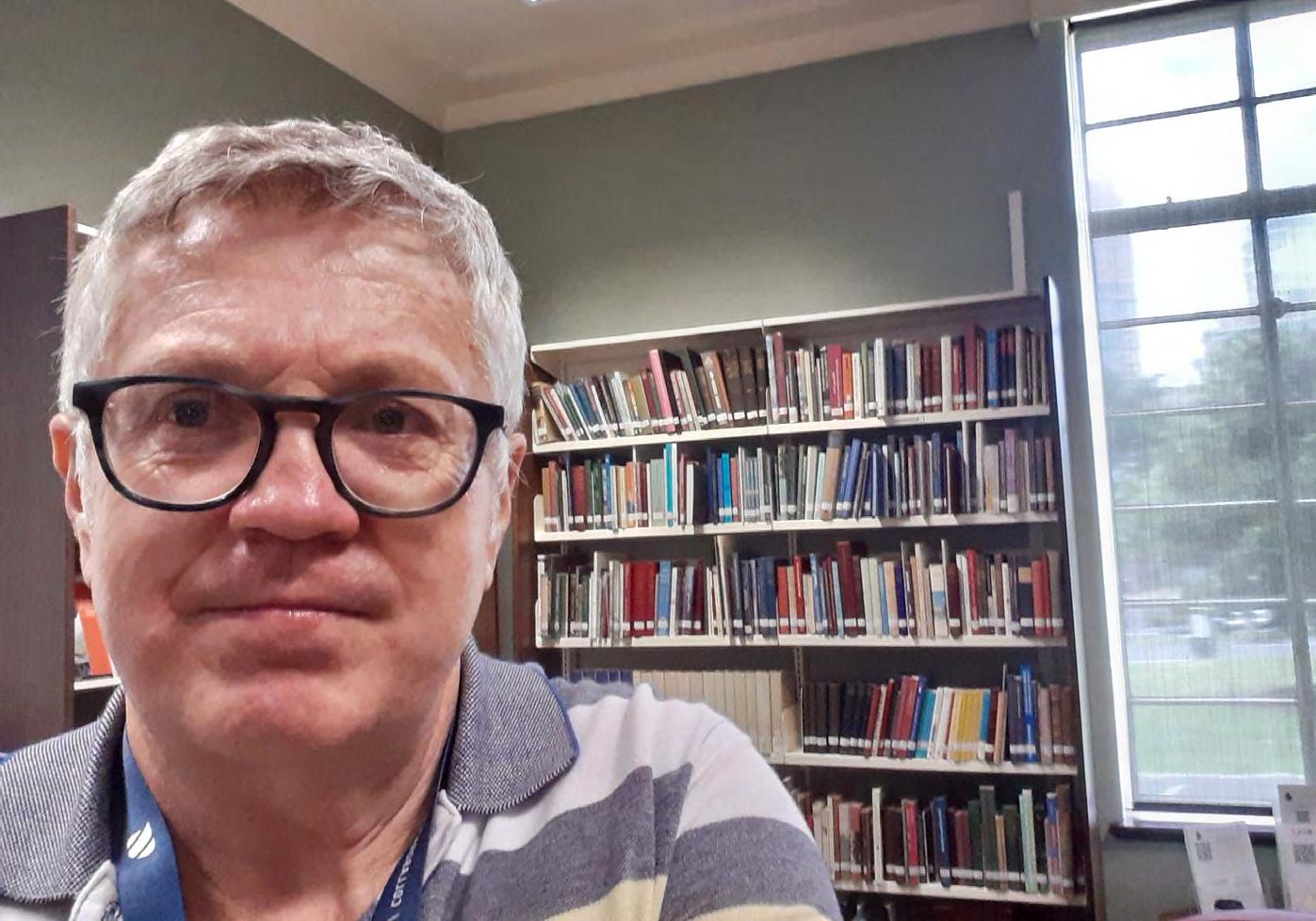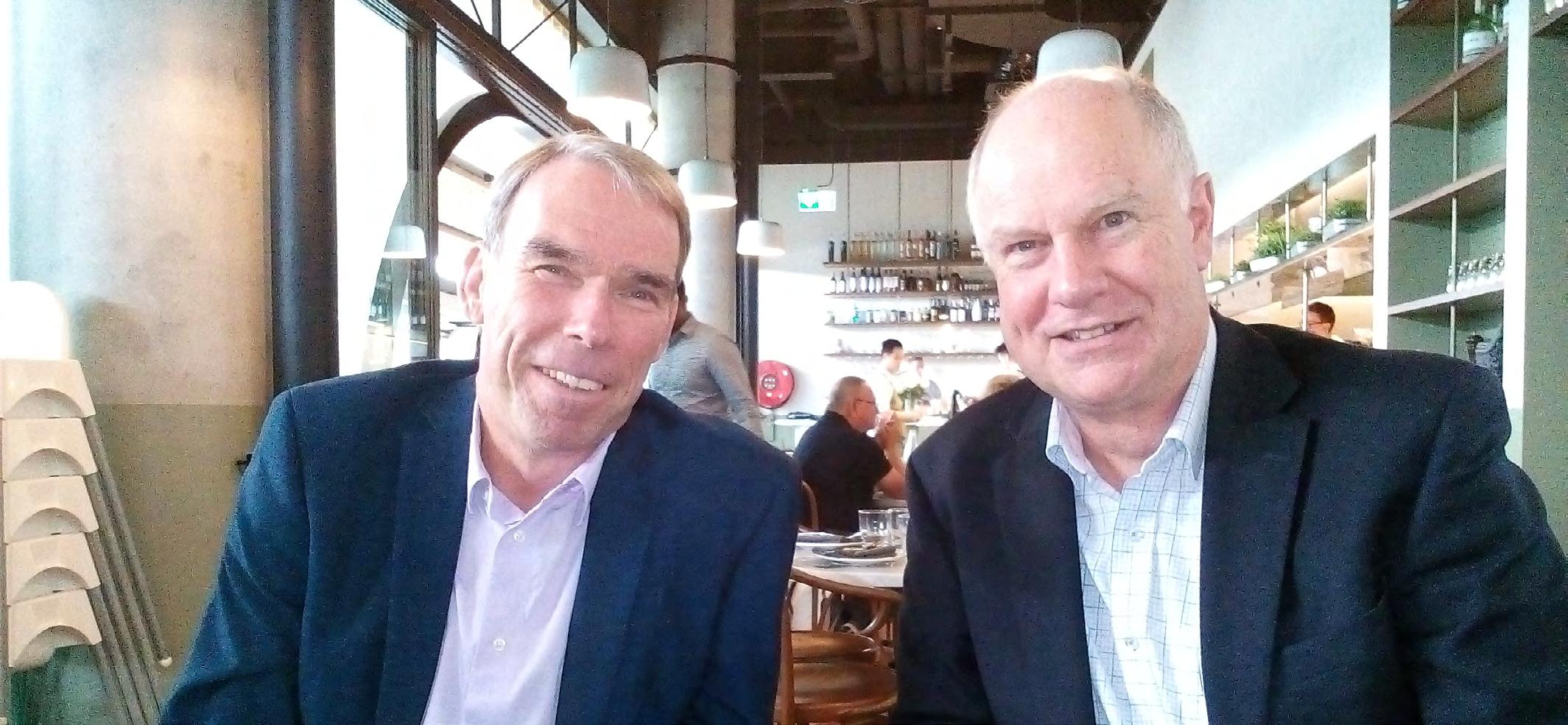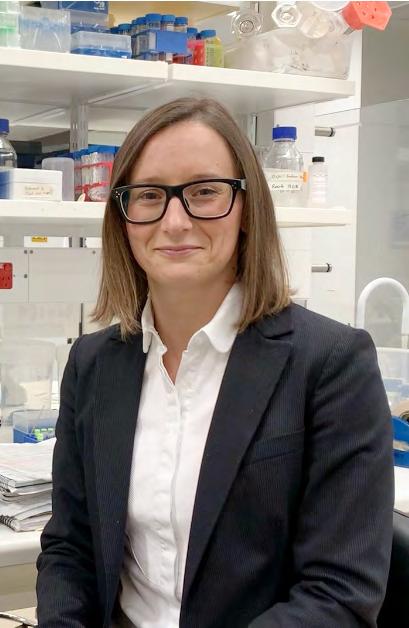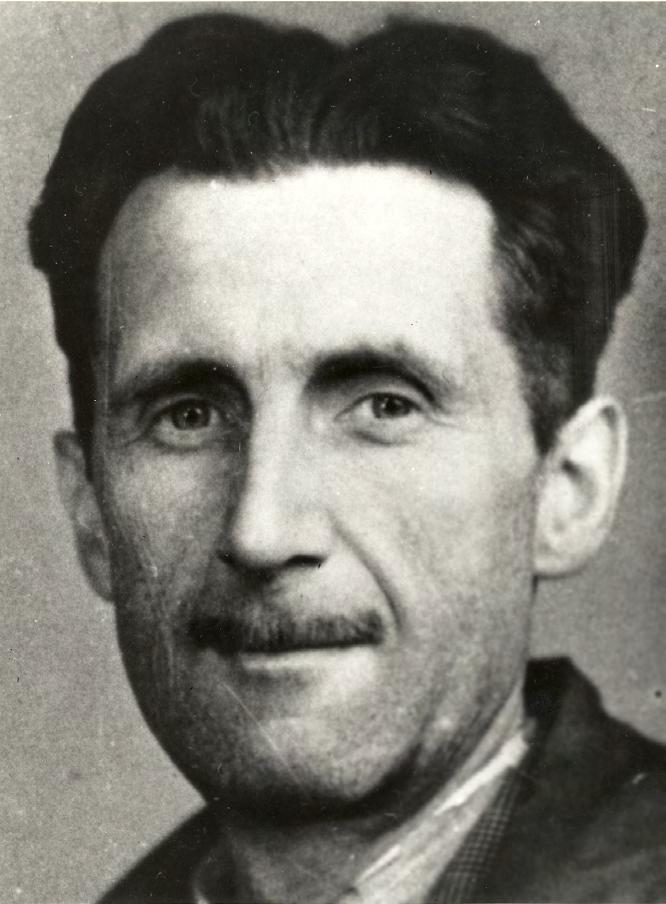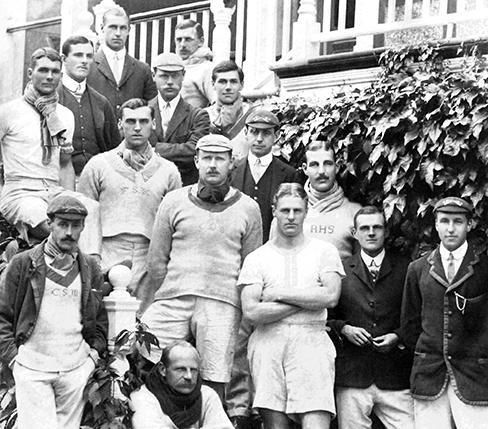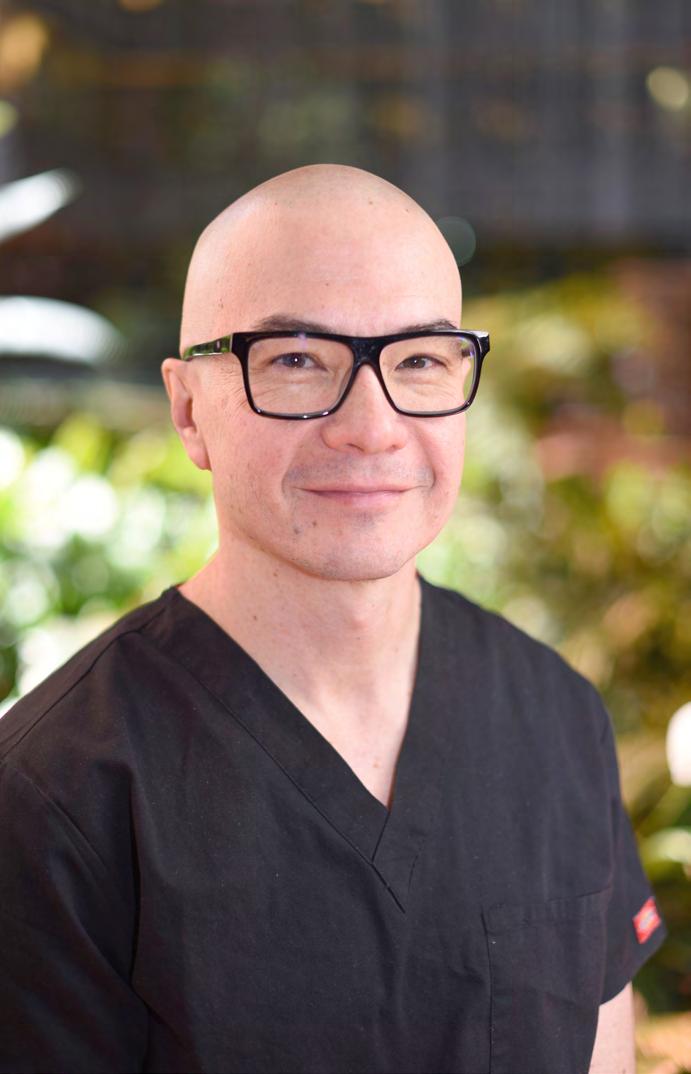
6 minute read
Improving health care globally
Improving the state of health care globally
Surgical News talks to Dr Liz McLeod about her deep commitment to giving back.
Advertisement
In her final year of medical school, paediatric surgeon Dr Liz McLeod undertook an elective in the Solomon Islands that, in her own words, “was a massive eye opener”. While it was a “fabulous, rich and wonderful time”, she said, “it took the blinkers off about the state of health care in large parts of the world”. While Dr McLeod’s interest in global health never dimmed, surgical training and family responsibilities took priority for a number of years. In the 1980s, the Royal Australasian College of Surgeons (RACS) Global Health model was different to what it is today. Visiting medical teams would go out into the regions with little information and operate in challenging low-resource environments. For Dr McLeod, “It was a difficult time of life to just take two weeks off and leave the kids,” she said. “But also, in that early stage of your career, it’s quite a daunting thing to do,” she explained, adding that surgeons in Australia and New Zealand are accustomed to being well-supported with plentiful equipment, fabulous teams in theatre and great colleagues who can be called on at any time to provide opinions. Working in developing countries can mean limited equipment, poor infrastructure and having to make difficult clinical decisions due to resourceconstrained environments. “It wasn’t something I thought I was ready for in the early stages of my Fellowship,” she said. In 2007, with an MD from the University of Melbourne, a Fellowship in General Surgery and a Fellowship in Paediatric Surgery under her belt, Dr McLeod departed on her first Global Health trip to Atambua, on the border of Timor-Leste in West Timor. As a new program in Eastern Indonesia, there were no established relationships, no contact and no communication, she said. “We were very much anticipating the kind of cases we’d have, and the locals didn’t know what we could do and what we couldn’t do.” In the Pacific it’s a different context, Dr McLeod said. There have been good ongoing relationships with local counterparts and national Ministries of Health for more than 30 years. “They know who we are and we can communicate directly. Before a trip visiting medical teams will be working patients up in liaison with in-country hospital partners; in-country clinicians know the kind of cases they need assistance with and the specific equipment required,” she explained. “It’s all based on relationships.” Advances in technology have meant that triage and communication can happen prior to a trip and teams know what equipment will be needed and the cases they’re likely to see due to preparation with in-country partners. RACS is a trusted institution in the region and the work done by Global Health is based on the outreach that started decades ago, Dr McLeod said. “Many Fellows have very longstanding relationships in the region. They are people who poured their hearts and souls into building Global Health at the College.”
Dr McLeod now provides technical advice to the monitoring and evaluation component of RACS’ Global Health program. In 2014, she graduated with a Master of Public Health from the University of Melbourne and her administrative expertise has been directed at program design and the evaluation process, as well as lots of “thinking, planning, designing and evaluating.” Ultimately, her work contributes to the improvement of health outcomes for people in Timor-Leste, the Pacific Islands, Papua New Guinea (PNG) and Myanmar. Over the past 25 years RACS’ Global Health initiatives have delivered 900 visiting medical teams to the Pacific, conducted an estimated 97,000 consultations and performed 26,000 operations. Surgeons have always been happy to contribute and be part of visiting medical teams, Dr McLeod said. “It’s very rewarding on a personal level and they love to contribute outside the normal
Dr Liz McLeod (right) with Miss Mandy Robertson.
paradigm. It’s also common for surgeons to want to go back and Global Health encourages it because they’re keen for people to go to the same place, meet the same in-country partners and build relationships. That’s where the value is added.” Challenges facing RACS activities in the region There are a number of challenges facing RACS activities in the region and the most immediate of these is COVID-19. It’s causing chaos in health systems across the world, including the Pacific, and figuring out how to work “synergistically with the other enormous challenges that are facing human beings is something we have to factor into all our thinking,” Dr McLeod said. How to respond as surgeons and mitigate risks is an ongoing discussion, and “safety mechanisms in a hospital in PNG, for example, as opposed to Melbourne, where we’ve got a lot more resources to throw at things, is being discussed a lot online.” While RACS has not been able to send any visiting medical teams overseas, it has continued working with surgeons and Trainees from the region. The evolution from being ‘deliverers of services’ to teaching colleagues and trainees to perform surgery and manage health care independently has been an unexpected benefit of COVID-19. “It’s kind of a lowhanging fruit we should have plucked years ago,” Dr McLeod said. “I can’t believe we’re only just waking up to the possibilities of Zoom and Teams and so forth.” Online meetings and workshops have enabled the training and education of local workforces to continue. An ear, nose and throat (ENT) session was organised recently, where an Australian ENT specialist was able to discuss difficult cases and do some basic teaching. Chair of RACS Global Health Dr Annette Holian also recently instigated an online Pacific women’s forum for female medical staff to come along and chat about anything that interested them. “We’re maintaining contact,” Dr McLeod said. While RACS has been proactive in supporting women in surgery, Dr McLeod would like to see more women surgeons and Trainees in the region actively supported so they, too, feel empowered throughout their journey. “Climate emergency is another big challenge and it puts at risk everything we’ve achieved so far,” Dr McLeod said. The amount of disruption that’s coming in the Pacific is immense, she added, and there are synergies between building climate change resilience and strengthening the infrastructure, supply chains, health information systems and governance of surgical systems. RACS Global Health is currently preparing for re-accreditation with the Australian Government Department of Foreign Affairs and Trade (DFAT). Accreditation is now an important part of any development assistance program and RACS Global Health and its volunteers are invested in maintaining the high standards that come with this accreditation. Usually, you can find Dr McLeod consulting and operating at The Royal Children’s Hospital and Monash Children’s Hospital in Melbourne, a role she loves. “Looking after kids is great and I can’t conceive going back to adult practice. They’re just so gorgeous and fun and resilient,” she said. Some of her families have enormous problems and a lot of the children have significant long-term morbidities, but she finds inspiration in the way they live life in small grateful steps. And of RACS Global Health, Dr McLeod said, “It’s not just about surgery, it’s about everything we do. It’s about education. It’s about gender. It’s about social justice. And all of it is complex and interwoven.”
